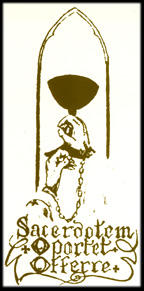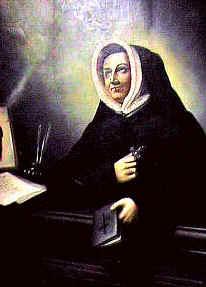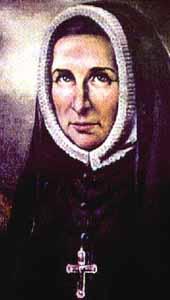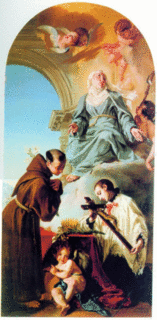
The Ordination Card of Bl. Karl Leisner done by a fellow prisoner
Germany was to have a troubled history, especially under the leaderships of Bismarck, Kaiser Wilhelm and Adolph Hitler. These troubles would have disastrous outcomes for the entire world but also for the people of Germany itself.
Germany prided itself on its power, industry and culture, and through various wars it swallowed smaller countries into its borders, making a second Reich, by overcoming Prussia, Silesia and other territories. This would lead Germany into a belief that it was invincible, thereby leading the country into the first world war with devastating consequences for the entire world.
It was the humiliating defeat at the closure of the first world war when the Treaty of Versailles was signed that would lay the ground work for the rise of the National Socialist party as the depression hit Germany as well as most of the world.
During this period many German people became desperate for a way out of their poverty, as many resented the terms of the Versailles Treaty, which would become music to the Nazi's ears. The Nationalist Socialist party used this aspect to further their own agenda, and while the Nazi party did not gain a majority vote at the polls, it was enough to allow Adolph Hitler to be named Chancellor by President Hindenburg. Under Hitler’s Chancellery he orchestrated a 'national emergency' and thereby shut down any processes of dissension. In this way Hitler became a Dictator, and there was very little the German people could do to stop the Nazi onslaught.
But this was not to say that all Germans were silent, nor that all Germans consented to this evil regime, for there were some Germans who recognised the evil intent of Adolph Hitler and his regime of tyranny!
One of these men was Karl Leisner, who was born in 1915, in the midst of the First World War. Karl was born into a large Catholic family of devout parents and he got on well with his siblings, which was just as well as Karl was always a strong natured young man with leadership potential. And though times were tough for the Leisner household, he was raised to be strong and resourceful and also to love his Faith which was instilled within him at an early age.
Karl though an introspective young man, much taken with deep thoughts, he was also robust and athletic, this natural but also sensitive nature led him to be noticed by his Parish Priest, who encouraged Karl to become a leader of the youth in his area. This was to be a happy time for Karl as he led his fellow friends on camping trips and climbing parties, and also into moments of prayer and reflection on their Faith and love for God and Church.
But unfortunately for Karl, the government of the day sent him to work in a labour camp this would have devastating consequences for him as he lived in damp conditions. It was during this time as his body weakened that he felt drawn to take the first steps in becoming a Priest by at first, becoming a Deacon.
Upon becoming a Deacon, he spent his time organising the youth in the area to take them on camping trips well away from the ever watchful Gestapo, he could instruct the boys in the Faith, and this also enabled the boys to attend Mass. But it was also during this time that the hacking cough he had developed became serious, and Karl was diagnosed with tuberculosis.
In 1939 he left for a mountain sanatorium in the Black Forest to help him overcome this deadly disease, but the Nazi's were not going to let this young man off so lightly and upon raiding his home they arrested Karl and placed him in jail. For the frail Karl this was not good news, and the Nazi machine was merciless to him and showed this brave young Deacon no mercy!
They sent him to the concentration camp at Sachsenhusen, and whilst there he tried his best to not only lift his spirits but the spirits of all those he came in contact with. But Karl was only there a short while before being transferred to the dreaded concentration camp at Dachau. Karl was going through a dark time spiritually but he held on to his love of God in full trust that God was in control, and also helped organise for himself and others to receive the Eucharist through Masses which were held in the greatest secrecy.
But Karl's tuberculosis was ravaging his body and there were many times he was taken to the terrifying 'infirmary' where the Nazi's did their 'experiments'. But through all of this Karl remained pleasant and tried his utmost to relieve the sufferings of all those around him, he often shared his meagre rations with others in order to show compassion in hellish conditions. And though the men felt themselves in hell, love could still abound in such souls as Karl Leisner.
Then in 1944 a Bishop was interred at the infamous Dachau alongside Karl. Through the imprisonment of Bishop Piquet, Karl would be able to embrace and fulfil his great passion and love, to become a Priest and serve his beloved Church. In great secrecy his fellow inmates made Vestments, a Mitre and a stole which was truly a miracle in such a dangerous environment. One of the prisoners had written on the stole this creed, "Victor in Vinculis"(Victor in Chains), this was to be a true Motto for though evil men may enchain a man's body they cannot enchain a man's soul.
It was during this miraculous occasion where divisions of religion no longer existed as many religions joined forces in helping Karl Leisner to become ordained into the Catholic Priesthood. Many from the Protestant denominations made a small party for Karl and a Russian Orthodox provided the Bishop with his ring. It was a truly awesome moment shared by all for love of God and for their fellow man.
Though this lifted the spirits of Fr. Karl, enough for him to hold his first Mass it was not enough to turn back the all encompassing tuberculosis. And though he was to see the allies win a victory against the Nazi tyranny, Karl did not live long enough to celebrate this joyous moment for long, as he slowly succumbed to the disease ravaging his emaciated frame.
Father Karl Leisner died in 1945.
Karl was beatified in 1991 by Pope John Paul ll.
Peace of Christ to you ALL
Copyright © 2005 Marie Smith. All rights reserved.



